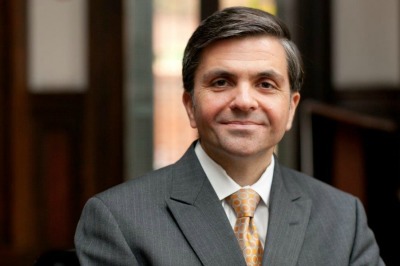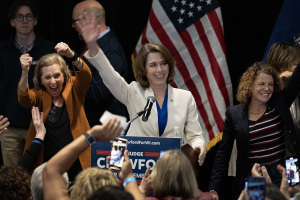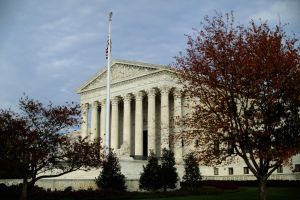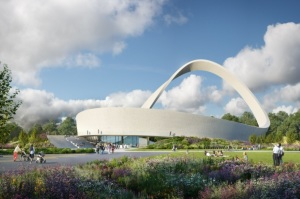George Will the Atheist and FDR the Christian

In an interview with a Nick Hahn, conservative columnist George Will admitted frankly that he is an atheist.
"An agnostic is someone who is not sure; I'm pretty sure," Will said. "I see no evidence of God." He recalled that his father was also an atheist, having rejected the beliefs of his own Lutheran minister father. Will himself studied religion in college but granted, "I'm an amiable, low-voltage atheist," although his wife and their children are "fierce Presbyterians."
I've enjoyed and admired Will since I was age 11, when I saw him comment on the Gerald Ford/Jimmy Carter 1976 presidential race, and thereafter read his columns religiously. Across 40 years he's remained one of the most insightful minds among U.S. commentators. He's also amiably grumpy, which often signals unbelief in a personal transcendent authority.
Will is featured among the commentators of Ken Burns' recent PBS series on the Roosevelts. Of FDR, Will admiringly says he was "armored with Christian faith that the universe was well organized." The series does not dwell on FDR's religion. His lifelong commitment to St. James Episcopal Church at Hyde Park is mentioned. He momentarily lost his faith when suddenly paralyzed by polio but quickly recovered both his faith and spirits, emblematic of his irrepressible buoyancy of temperament.
At FDR's first meeting with Winston Churchill, the British prime minister hosted an Anglican Sunday service on the deck of a British warship, knowing the joint worship would help emotionally bond FDR to the Allied cause. "We are Christian soldiers," FDR remarked privately afterwards, as the PBS series recounts. "And we will go on with God's help."
When once pressed about his beliefs, FDR responded simply, "I'm a Christian and a Democrat." He had no complex theology but accepted what he had long received from his Episcopal upbringing, reinforced at his boarding school by the muscular Christianity of Rev. Endicott Peabody, headmaster at Groton.
FDR quoted Peabody in his final inaugural address shortly before his death, having endured the horrors of WWII yet still anticipating the providential path toward civilizational redemption:
Things in life will not always run smoothly. Sometimes we will be rising toward the heights—then all will seem to reverse itself and start downward. The great fact to remember is that the trend of civilization itself is forever upward; that a line drawn through the middle of the peaks and the valleys of the centuries always has an upward trend.
And FDR concluded:
The Almighty God has blessed our land in many ways. He has given our people stout hearts and strong arms with which to strike mighty blows for freedom and truth. He has given to our country a faith which has become the hope of all peoples in an anguished world. So we pray to Him now for the vision to see our way clearly—to see the way that leads to a better life for ourselves and for all our fellow men—to the achievement of His will to peace on earth.
Appropriately, FDR's final worship service was on Easter Sunday, at the Episcopal chapel he built in Warm Springs, Georgia at the facility he created for polio patients. FDR's refusal to accede to despair, amid his own paralysis, or amid the cosmic crises that threatened the nation's and civilization's survival, can only make sense for a man who believed his and the world's fate rested with a merciful God.
George Will in contrast affirms the moral architecture of America's governing principles centered on human dignity but cannot acknowledge the chief Architect. He quotes William Buckley that conservatives do not have to be religious but cannot despise religion. Will accepts Christian warnings of humanity's intrinsic fallen nature but, as a atheist, has no ultimate hope for humanity's salvation. He can't be faulted for his grumpiness. And he should be credited for still idealistically, stubbornly cleaving to the personal and political virtues that only religion ultimately can originate, as perhaps his Lutheran preacher grandfather taught.





























